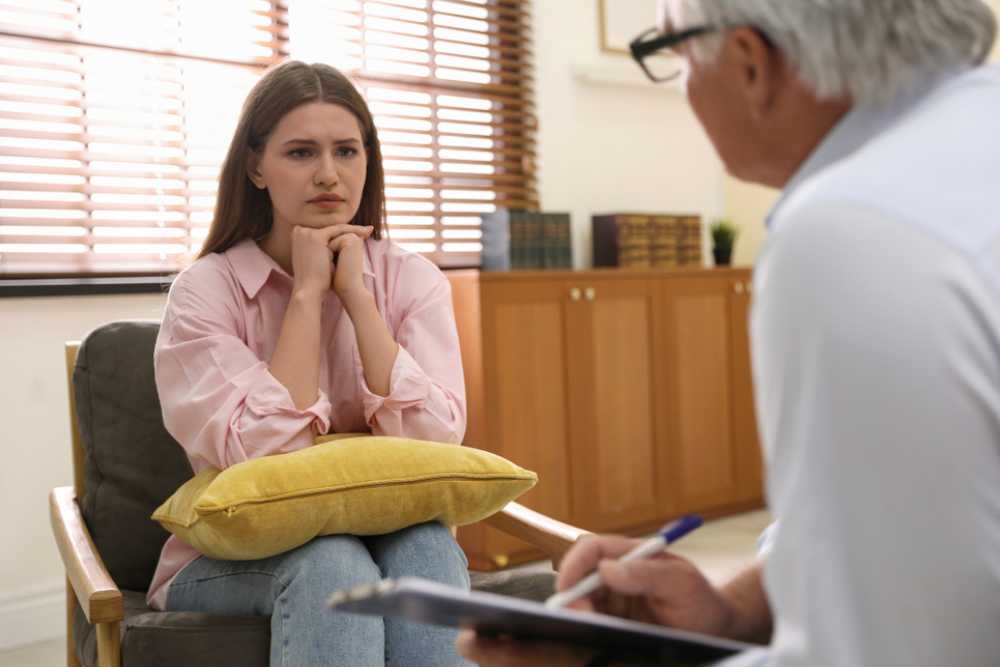When looking at effective treatments for mental health, many patients ask, does TMS therapy work? The answer is yes, Transcranial Magnetic Stimulation (TMS) has shown promising effectiveness in treating mental health disorders, particularly for treatment-resistant depression. According to Harvard Medical School, approximately 50% to 60% of people with depression who have tried and failed to receive benefit from medications experience a clinically meaningful response with TMS. About one-third of these patients experience a complete remission.
While depression is the most studied condition, TMS is also showing effectiveness for other mental health conditions, such as obsessive-compulsive disorder (OCD). For mental health treatment overall, TMS for mental health disorders is an important middle ground between medications and therapy and more intensive interventions, offering hope for patients who haven’t found relief through traditional approaches.

How Long Does It Take to See Results From TMS Therapy?
The timeline for seeing results from TMS therapy varies among individuals, but there are some general patterns. Most people notice improvement between the fourth and fifth week. However, some could experience benefits sooner and others later than this range. Most patients see results in two to four weeks.
Some patients may notice initial improvements even earlier, though some patients will experience an improvement in their symptoms after a few TMS sessions. For most people, the benefits of TMS develop gradually over several weeks. Some patients don’t experience significant improvements until later in treatment, or even after it ends. Most patients report incremental or gradual improvement rather than sudden, dramatic changes.
Understanding the treatment timeline is important since TMS is unique in that it is typically administered in five sessions each week for six to seven weeks, with each session lasting between 20 and 40 minutes. The key is that TMS typically requires patience, as benefits accumulate over several weeks rather than appearing immediately. Most people who will respond to TMS treatment in California begin seeing meaningful changes by the four to five-week mark of therapy.
Is TMS Therapy More Effective Than Medication?
The comparison between TMS therapy and medication effectiveness depends on several factors, and they serve different roles in depression treatment. It’s important to understand that TMS and medications often address different patient populations. For individuals who have not responded well to traditional antidepressant medications, TMS therapy in Southern California may be a viable alternative.
TMS Advantages
- Overall, TMS therapy offers a targeted approach without the systemic side effects often associated with medication.
- TMS offers a novel treatment option that is safe, with no invasive side effects, and improved short and long-term response.
- No need for daily medication adherence
- Fewer drug interactions and systemic effects
Medication Advantages
- More accessible and widely available
- Lower cost initially
- Can be combined with other treatments
- Easier to adjust dosing
Both TMS therapy and medication have been shown to be effective in treating depression. However, they are different treatments that each have their own benefits and drawbacks. TMS appears particularly valuable for treatment-resistant depression, where medications haven’t worked, offering hope to a population that has limited options. Many treatment plans may incorporate both approaches strategically rather than viewing them as competing alternatives.
Mental Health Treatment That Works
Call 949-625-0564What our customers are saying
How Does TMS Therapy Work in the Brain?
TMS therapy works in the brain through a sophisticated process that combines physics and neuroscience to modify brain activity:
- Transcranial magnetic stimulation relies on two basic principles of physics: electricity and magnetism. These two principles can also work cooperatively, and TMS relies on their ability to work together.
- TMS uses electromagnetic induction to generate an electric current across the scalp and skull. A plastic-enclosed coil of wire is held next to the skull and when activated, produces a varying magnetic field oriented orthogonally to the plane of the coil.
- With TMS, the prefrontal cortex is stimulated by magnetic pulses. Patients wear a cap fitted with a magnetic coil for a series of treatments that last from 3 to 30 minutes. The pulses induce small electric currents that reset dysfunctional brain patterns associated with depression.
- TMS devices operate entirely outside of the body and affect central nervous system activity by applying powerful magnetic fields to specific areas of the brain known to be involved in depression.
- TMS uses electromagnets placed on the head to send out targeted magnetic waves to stimulate and “reset” brain networks that regulate mood.
- The repetitive nature is essential because it creates lasting changes in neural circuits rather than just temporary stimulation.
- Throughout treatment, these repeated stimulations help rewire dysfunctional brain networks associated with depression, essentially helping the brain return to healthier patterns of activity.
Who Is Most Likely to Benefit From TMS Treatment?
Individuals most likely to benefit from TMS treatment are those with treatment-resistant depression who have not responded adequately to traditional antidepressant medications or psychotherapy. This includes people who have tried multiple medications without success, those who experience intolerable side effects from psychiatric drugs, or individuals seeking an alternative to medication-based approaches. TMS is particularly effective for patients with major depressive disorder who retain some level of functioning but continue to struggle with persistent symptoms despite conventional treatments.
Beyond depression, TMS may also benefit individuals with OCD, as deep TMS has FDA approval for this condition and demonstrates good effectiveness rates. Patients who are good candidates typically have realistic expectations about the treatment timeline, can commit to the required schedule of daily sessions over several weeks, and don’t have contraindications such as metallic implants near the head or a history of seizures.
The ideal TMS candidate is someone who has exhausted first-line treatments but remains motivated to pursue recovery, understands that results develop gradually over weeks rather than immediately, and prefers a treatment approach that avoids the systemic side effects commonly associated with psychiatric medications while offering hope for lasting symptom relief.

Does TMS Therapy Work? Key Takeaways
- TMS shows impressive results where traditional treatments have failed, with 50-60% of people who haven’t responded to medications experiencing meaningful improvement, and about one-third achieving complete remission.
- Most patients begin seeing improvements between weeks four and five of treatment, with benefits developing incrementally rather than suddenly.
- Unlike medications, TMS offers targeted brain stimulation without systemic side effects, drug interactions, or the need for daily medication adherence.
- TMS works by using magnetic fields to generate small electrical currents in specific brain regions.
- While FDA-approved primarily for depression and OCD, TMS represents a valuable middle-ground treatment between therapy/medications.
Are you wondering does TMS therapy work for depression and other mental health conditions? This innovative treatment does provide a promising approach for individuals struggling with these challenges. To learn more about how TMS therapy can benefit new patients and potentially transform their mental well-being, please reach out to Moment of Clarity at 949-625-0564.
Resources
- Yale Medicine –Transcranial Magnetic Stimulation (TMS) for Depression, OCD: What to Know
- Cleveland Clinic –Transcranial Magnetic Stimulation (TMS)
- Harvard Medical School –Transcranial magnetic stimulation (TMS): Hope for stubborn depression




